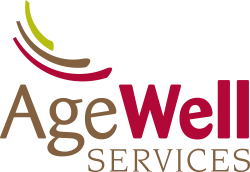Guest post by SafeSeniors
The financial, emotional, and physical costs of elder abuse, neglect, and financial exploitation are high. For older adults, losses include their dignity, autonomy, good health, financial security, and in some cases, their life. For society, it’s both a social and economic issue – it reduces older adults’ participation in the life of the community and it creates health care and legal costs, which can affect public programs like Medicare and Medicaid.
1 in 10 older adults in the United States experience abuse, neglect, and financial exploitation, yet only 1 in 24 report abuse/neglect and only 1 in 44 report financial exploitation. Learning and talking about elder abuse, neglect, and financial exploitation is important to increase awareness, leading to both prevention and reporting.
5 Steps to Build Community Support
The National Center on Elder Abuse has five recommendations for building community supports to help prevent and stop abuse, neglect and financial exploitation:
- Listen to people and their caregivers to understand their challenges and provide support
- Build a community that fosters social connections and supports
- Reach out to professional services for help when needed
- Educate one another about the signs of abuse
- Report suspected abuse, neglect, or exploitation as soon as possible. Call APS at (855) 444-3911 24/7 or call 911 or your local police department
Signs of Abuse, Neglect, and Financial Exploitation
Here are some potential signs to watch out for in friends and family members. Different types of abuse, neglect, and financial exploitation often lead to one another and can occur at the same time, so you may see signs from more than one type at the same time.
Physical
- Unexplained injuries or sores
- Dehydration or unusual weight loss
- Missing medication or medical assistive devices
- Unsanitary living conditions or poor hygiene
- Unattended medical needs or missed appointments
Emotional
- Unusual changes in behavior or sleep patterns
- Withdrawal from normal activities
- Isolation from friends and/or family
- Increased anxiety and/or fear
- Hesitance to speak in presence of “caregiver”
Financial Exploitation
- Unpaid bills or unmet needs, despite seemingly adequate income & assets
- Missing household items
- Unexpected changes in wills and/or property deeds
- Purchase of large items the older adult does not use
- Changes in habits/patterns (such as unusual ATM/debit card/check usage)
Ask Questions If You Sense Abuse, Neglect, or Exploitation
Together, we can fight abuse, neglect, and exploitation! Watch out for your people. If you see or sense that something is not right, speak up. You don’t have to ask directly about abuse, neglect, or exploitation – instead ask questions that may get someone to open up.
- You seem quiet lately, is everything ok?
- How’s it going having your son living with you?
- Tell me more about this new love interest you met on social media.
- Where’s that beautiful grandfather clock that used to be in the hall?
- Are you coming back to yoga class soon? I miss you!
It’s better to act on your instincts and be wrong, than to not act and be right. For more information, visit SafeSeniors.info.
About the Author
SafeSeniors is on of the AgeWell Services of West Michigan programs which works to identify, advocate, and seek justice for adult victims of abuse, neglect, and financial exploitation within Muskegon, Ottawa, and Oceana counties of Michigan. We will occasionally share posts on this blog from SafeSeniors.

